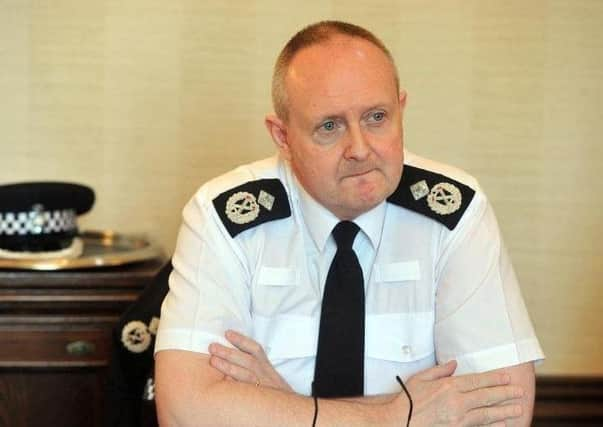Why South Yorkshire Police was following the rules with notorious '˜non-crime hate incidents' tweet


It was a message that prompted thousands of replies and widespread ridicule from around the globe; South Yorkshire Police’s tweet to its 166,000 followers on Monday encouraging people to “please report non-crime hate incidents” quickly gained worldwide notoriety.
The tweet - which added that such incidents could include offensive or insulting comments made online, in person or in writing - was soon being held up as an example of a police force overstepping the boundaries of its remit to protect the public from genuine criminals and drew unfavourable comparisons with its recent low conviction rates in areas like burglary and shoplifting.
Advertisement
Hide AdAdvertisement
Hide AdAmong the critics were journalist Toby Young, who replied: “What does this even mean? If the incident in question isn’t a crime, even under the absurdly capacious legal definition of a ‘hate crime’, then what is South Yorkshire Police proposing to do by way of not tolerating it? If a comment is offensive but not a crime, it’s not a police matter.”
Popular legal tweeter The Secret Barrister added: “Frankly I would rather the police direct their limited time and resources away from “non-crime” and in the direction of the “crime-crime” which I’m struggling to prosecute in court due to the basics not being done.”
And the message reached a global audience through right-wing Canadian author Jordan Peterson, who told the force: “You are a pack of preposterous totalitarian fools blinded to your desire for power by your utterly false compassion. Does that qualify as hate?”
But the force has defended itself by saying it was following national guidelines - an assertion backed up by an examination of operational guidance produced by The College of Policing for officers.
Advertisement
Hide AdAdvertisement
Hide AdThe guidance from 2014 directly references the findings of an inquiry into the murder of black British teenager Stephen Lawrence which ruled the Metropolitan Police was “institutionally racist” It states: “One of the fundamental findings of the Stephen Lawrence inquiry was the need to respond to racist incidents as well as to crimes.
“Incidents can escalate to more serious actions if unchecked and the damage caused to victims is often as serious as if it were a crime.
“A non-crime hate incident is defined as: any non-crime incident which is perceived by the victim, or any other person, to be motivated (wholly or partially) by a hostility or prejudice.
“Most forces have a system for recording non-crime hate incidents and should be able to analyse non-crime incidents so that preventive activity can take place, and any tensions that exist in communities can be measured.”
Advertisement
Hide AdAdvertisement
Hide AdWhile South Yorkshire Police has taken much criticism for the tweet, other forces also ask the public to report non-crime hate incidents. For example, The Met Police website states: “Not all hate incidents will amount to criminal offences, but it is equally important that these are reported and recorded by the police.”
A statement issued by the force’s deputy chief constable Mark Roberts also pointed out the tweet had come after a significant increase in online abuse following a security alert in Barnsley at the weekend relating to a stabbing for which a woman has been charged with attempted murder.
He said: “Hate crime affects communities across the UK. Our recording of non-crime hate incidents is nationally accepted good practice and is the policy adopted by all forces. In the wake of this weekend’s incident in Barnsley, we have seen a significant increase on our social media platforms of offensive abuse against our communities. The comments are vile and offensive and, ironically, the bigotry expressed re-emphasises the need to tackle hate both within our local communities and much wider.
“Unfortunately, we see this type of offensive content on a regular basis. This will undoubtedly cause distress and fear to people within our communities. We have seen unacceptable comments, and will seek to prosecute, those responsible where appropriate.
Advertisement
Hide AdAdvertisement
Hide Ad“We will not tolerate this type of messaging and will continue, together with our partners, to raise awareness of hate.”
While the force may be following the rules, the outspoken reaction suggests it will take some work by police to get the public to accept ‘non-crime’ incidents should be a matter for them.